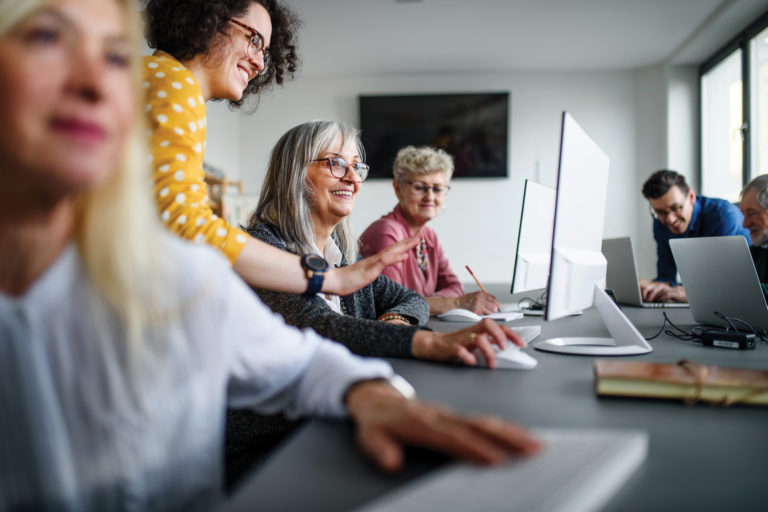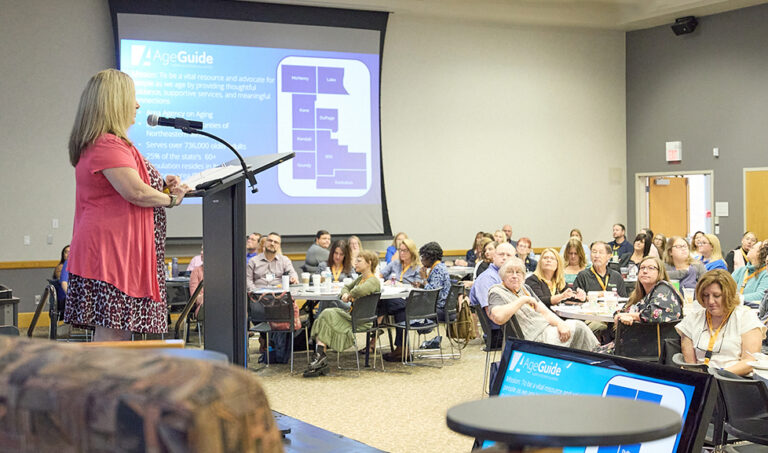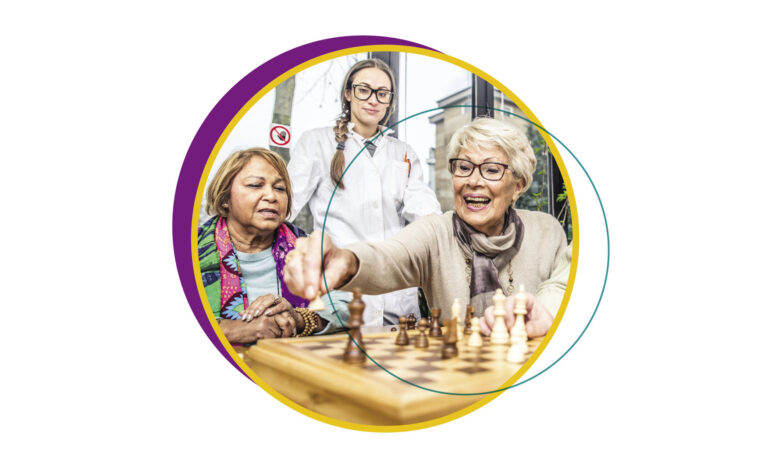
Kathryn O’Shea-Evans is a freelance writer for The New York Times, Wall Street Journal, and many other outlets.
Helping older adults master new devices
In today’s techy world, it’s more important than ever to master new devices in order to stay in touch and access opportunities. But as anyone who
has ever grappled with new technology will tell you: It’s not easy, no matter how old you are.
Thankfully, plenty of organizations offer tech help, whether the senior in your life is hoping to Zoom with the grandkids or try online dating.
One of the most accessible avenues for finding assistance with new technology is your local library, where librarians like Meghan Moran, resource sharing librarian at the Oak Lawn Public Library, await with aiding arms.
“At my library, you can call with questions and set up a 30-minute appointment with a librarian to get to the root of things,” Moran says.
Moran helped one woman in her 80s download audiobooks to her tablet, so she could lie in bed and listen to the books being read to her, Moran recalls. “I was able to teach her: ‘Here’s how you search for books. Click this button if you want to borrow this book and download it.’ We would go through it step by step.”
It was gratifying to help the woman learn to use audiobooks, Moran says. “She had never done it before and was so excited to be able to do this herself. Joy lit up her face.”
Here, Moran and other senior-supporting pros share their tips to help older adults become more technologically literate, one gadget at a time.
Enlist help
When it comes to teaching loved ones about a dizzying new device, reach out to the pros, says Jason Echols, manager of special initiatives at AgeOptions, the state-designated Area Agency on Aging (AAA) for suburban Cook County.
Local AAA organizations are great resources, Echols says. “If you’re a caregiver or your family is struggling with technology, it can be really stressful to try to explain it. That’s why it’s such a great idea to reach out to organizations. There are people there who are thrilled to help.”
“It’s not going to happen overnight. No learning ever does. But there are steps you can take, and over time things will get easier.”
To find the AAA near you, contact the Illinois Department on Aging (www2.illinois.gov/aging, 800-252-8966) or the federal Eldercare Locator (eldercare.acl.gov, 800-677-1116).
Many other groups can help, too. Rein Puttkammer, director of operations for Home for Life Advantage, which provides ADA accessibility equipment in the Chicago area, suggests seeking support through organizations such as TechBoomers (techboomers.com) and AARP (aarp.org), which are both chockablock with content that helps older adults grasp everything from Audible to eBay.
Individualize instruction
There are many learning styles, ranging from spatial (visual learners) to interpersonal (social learners). If you can figure out the best way to approach your loved one, you’re much more likely to be successful in your tech-teaching endeavors. For instance, one person might prefer written instructions, while another needs to watch a YouTube video demonstrating the skill.
“Individual instruction is really important because we all learn differently,” Moran says. “In order for somebody to learn a new skill, you have to find out what their learning style is. Do they learn better by doing, tactile, audio/verbal instruction, or visual? All of that plays a role.”
Get hands on
Puttkammer often sees people doing technological tasks for seniors, rather than encouraging them to learn the skill. Instead, he advises people to show older adults how to accomplish the job themselves. You never know where it may lead.
Puttkammer had a friend who taught herself how to trade online at age 80. “They have to have the desire,” he says. “And everyone needs to have patience and show them. Don’t do it for them. Build their confidence and practice.”
Practice makes perfect
The old adage rings as true as ever: If at first you don’t succeed (in operating your new laptop, tablet, or phone), try, try again.
“It’s trite, but true. Keep trying it. Keep working on it,” Moran says. “It’s not going to happen overnight. No learning ever does. But there are steps you can take, and over time things will get easier.”
Tech for Seniors
Not all tech products are created equal, especially when you’re in your golden years.
“I’ve heard stories about friends and family who get their parent the highest-end tablet, but it goes unused because it’s not intuitive,” says librarian Meghan Moran.
Investing in gadgets that are tailor-made for older adults can help. Here are a few to consider:
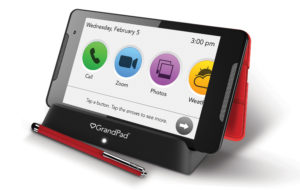 GrandPad
GrandPad
This tablet — designed for those age 75 and up — can do it all, including video calls, games, email, and even hailing a ride. Bonus: The monthly service plan keeps the device constantly hooked up to the internet, no pesky Wi-Fi router required.
From $58 a month
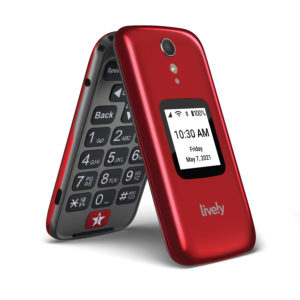 Lively Flip
Lively Flip
Fans of the handy flip phone may want to consider the Lively Flip, a new mobile flip option, complete with big buttons, Amazon’s Alexa, an urgent response button, a loud speaker, and a magnifier with a flashlight.
From $99, plus monthly payment plan and activation
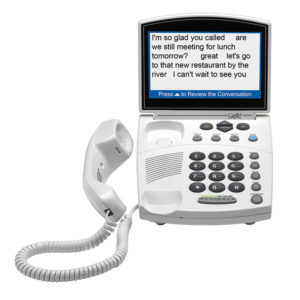 CapTel captioned phone
CapTel captioned phone
If you’re living with hearing loss, it can be hard to feel connected to friends and family. This telephone features a large screen with captions for every word spoken.
Can you spell b-r-i-l-l-i-a-n-t?
From $75; individuals with hearing loss may qualify for a phone at no cost.

